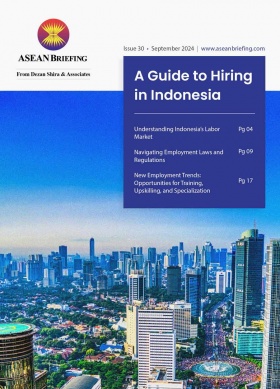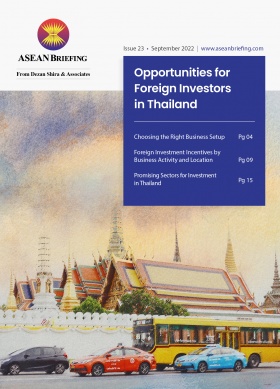Thailand and the UK’s Enhanced Trade Partnership: An Overview
Thailand and the United Kingdom have solidified their economic relationship by signing the Enhanced Trade Partnership (ETP), a comprehensive agreement encompassing twenty sectors. This partnership aims to eliminate trade barriers, stimulate investment, and foster collaboration across various industries, including healthcare, clean energy, and digital technology. For the UK, the ETP represents a strategic move to strengthen ties with Southeast Asia in the post-Brexit era. For Thailand, it serves as a pivotal component of its strategy to rejuvenate its economy and attract international investment.
Thailand-UK Trade: An evolving partnership
The trade relationship between Thailand and the United Kingdom has evolved over decades, with both nations benefiting from their complementary economic strengths.
Thai exports to the UK
Thailand’s exports to the UK primarily consist of high-demand commodities that showcase its industrial and agricultural strengths:
- Electronics and electrical equipment: Including computer components and semiconductors, are integral to the UK’s manufacturing and technology sectors.
- Automotive parts: This reflects Thailand’s position as a leading automotive manufacturing hub in Southeast Asia.
- Agricultural products: Including rice, fresh and processed fruits, and seafood, cater to the UK’s diverse consumer base.
- Textiles and garments: Including fabrics and ready-made clothing remain staples in Thailand’s export portfolio.
UK exports to Thailand
The UK’s exports to Thailand reflect its dominance in high-value goods and innovation-led industries:
- Machinery and mechanical appliances: Critical for Thailand’s growing industrial sector and infrastructure development.
- Pharmaceutical products: Support Thailand’s healthcare and medical needs, including vaccines and advanced medicines.
- Automotive vehicles: Particularly luxury cars, and specialized machinery, serve Thailand’s growing middle class and industrial requirements.
- Beverages: Including premium alcoholic products like Scotch whisky, enjoy a niche but robust demand in Thailand.
The ETP builds on this strong foundation, not only boosting the trade of these existing commodities but also opening avenues for new sectors like green energy, digital technology, and advanced manufacturing.
Sectors covered by the ETP
The ETP is notable for its extensive coverage, addressing twenty sectors critical to modern economies:
Automotive
The partnership emphasizes collaboration in decarbonizing road vehicles and harmonizing testing procedures. Both nations aim to enhance supply chain connectivity, particularly in electric vehicles (EVs) and advanced automotive technologies.
Digital Economy
Building on a 2022 Letter of Intent on digital cooperation, the ETP focuses on expanding digital trade, setting standards, and fostering innovation in areas like fintech and cybersecurity. This collaboration is expected to strengthen Thailand’s growing digital economy while allowing UK firms greater access to the Thai market.
Education
The ETP promotes collaboration in transnational education, technical and vocational training, and English language proficiency. By strengthening higher education ties and leveraging educational technology, both nations aim to equip their workforces for a rapidly changing global economy.
International standards
The partnership between the British Standards Institute (BSI) and the Thai Industrial Standards Institute (TISI) aims to harmonize international standards, enhancing trade efficiency and fostering innovation-led partnerships.
Agriculture, food, and drink
Building on a 2023 Memorandum of Understanding, the ETP seeks to deepen ties in the agriculture and food sectors, including best practices in regulation and disease control, while promoting trade in agricultural products and processed foods.
Investment
The ETP aims to create a sustainable and transparent investment environment, streamlining administrative procedures and facilitating investment flows. The possibility of a non-binding Memorandum of Understanding further underscores the commitment to strengthening bilateral investment ties.
Technical barriers to trade
The agreement addresses trade barriers through potential Mutual Recognition Agreements (MRAs) on product conformity assessments, aiming to lower export compliance costs, reduce delays, and improve market access for goods in both nations.
Healthcare
The ETP supports collaboration in healthcare innovation, life sciences, and pharmaceuticals. Shared goals include improving regulatory systems, conducting clinical trials, and advancing health technology assessments to enhance healthcare access and innovation.
Customs
Enhanced cooperation between Thai Customs and His Majesty’s Revenue and Customs aims to streamline trade facilitation, improve operational efficiency, and support information-sharing frameworks.
Competition, subsidies, and state-owned enterprises
The ETP fosters dialogue on fair competition, sharing best practices on subsidy policies and state-owned enterprise reforms to ensure transparency and promote a level playing field for businesses.
Financial services
Identified as a priority in the 2021 UK-Thailand Joint Trade Review, financial services are a key focus of the ETP. The collaboration will address market access challenges and improve the overall investment climate.
Multilateral cooperation
Both nations reaffirm their commitment to multilateral frameworks like the World Trade Organization (WTO), collaborating on issues such as dispute resolution and global trade standards, with Thailand expressing interest in aligning with OECD practices.
Intellectual property
The ETP emphasizes the protection of intellectual property rights (IPR), particularly in addressing online piracy. Collaboration between the British Embassy in Bangkok and Thai agencies aims to enhance IPR enforcement, benefiting creative and digital industries.
Public procurement
The partnership seeks to enhance transparency and efficiency in public procurement, focusing on integrating digital systems and creating opportunities for small and medium enterprises (SMEs) to enter the procurement market.
Trade in services
Services, including education, healthcare, and professional services, represent a key growth area. The ETP aims to enhance bilateral trade in services through best practice sharing and streamlined regulatory processes.
Trade remedies
The agreement strengthens technical understanding of trade remedies, fostering alignment on policies and procedures to effectively address unfair trade practices.
Environment
Climate action is a cornerstone of the ETP, with both nations committing to promote trade in environmental goods and services. Collaborative efforts focus on transitioning to low-carbon economies and sustainable supply chains.
Clean growth
Green finance, carbon pricing, and decarbonizing energy systems are pivotal to the clean growth initiatives outlined in the ETP. They support both countries in meeting their climate goals while fostering economic benefits.
Labor standards
The ETP reaffirms commitments to multilateral labor standards under the International Labor Organization (ILO), promoting fair and sustainable employment practices.
Tourism
Recognizing tourism’s economic significance, the ETP fosters collaboration to increase tourist flows, encourage joint marketing efforts, and facilitate partnerships between tourism stakeholders in both countries.
Thailand’s pursuit of trade agreements: A strategic response to economic challenges
Thailand’s proactive engagement in trade agreements like the ETP is a strategic response to its economic challenges. The country has faced slow economic growth, influenced by global market uncertainties, a shrinking labor force, and increasing competition from neighboring countries such as Vietnam and Indonesia.
Conclusion
The Enhanced Trade Partnership between Thailand and the UK exemplifies the potential of international collaboration in addressing shared economic and societal challenges. The agreement encompasses twenty diverse sectors and provides a comprehensive framework for fostering trade, innovation, and investment.
About Us
ASEAN Briefing is one of five regional publications under the Asia Briefing brand. It is supported by Dezan Shira & Associates, a pan-Asia, multi-disciplinary professional services firm that assists foreign investors throughout Asia, including through offices in Jakarta, Indonesia; Singapore; Hanoi, Ho Chi Minh City, and Da Nang in Vietnam; besides our practices in China, Hong Kong SAR, India, Italy, Germany, and USA. We also have partner firms in Malaysia, Bangladesh, the Philippines, Thailand, and Australia.
Please contact us at asean@dezshira.com or visit our website at www.dezshira.com and for a complimentary subscription to ASEAN Briefing’s content products, please click here.








